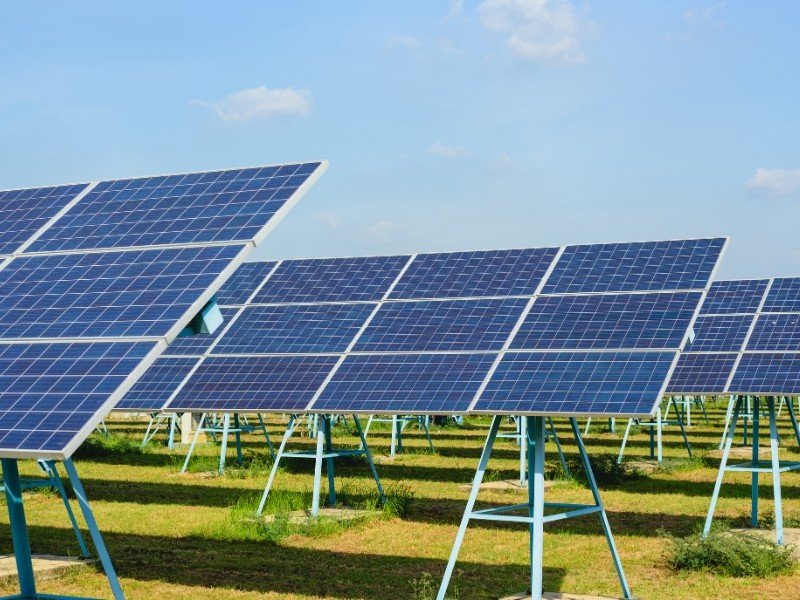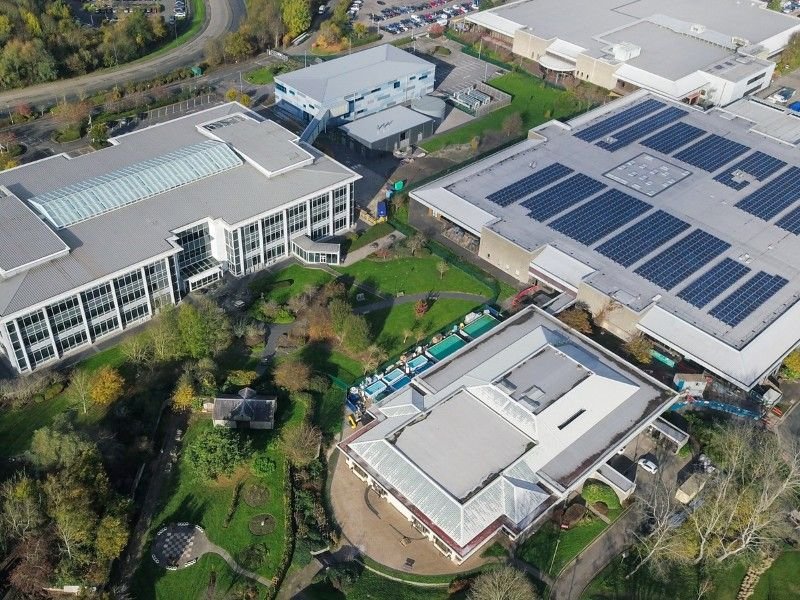Switching to solar power is more than an environmentally conscious choice- it is a smart business decision. For factories, industries, and businesses in India, adopting commercial solar power systems offers significant savings and sustainability benefits.
Commercial solar power refers to solar energy systems specifically designed to meet the higher energy demands of businesses, converting sunlight into electricity through solar panels that can be installed on rooftops or ground-mounted depending on the available space.
This guide will help you understand how to go solar and fully capitalise on its benefits for your business.
Types Of Commercial Solar Systems
- 1
Rooftop Solar Panels: These are installed on the roofs of buildings and are the most common type of commercial solar system. The Rooftops offer ample space and direct sunlight, making them ideal for solar installations.
- 2
Ground-Mounted Solar Arrays: These systems are set up on the ground, often in large open areas. They are suitable for businesses with available land and can be adjusted to maximise sunlight capture.
- 3
Solar Carports: These are structures built over parking lots, providing shaded parking spaces while generating solar power. Solar carports are gaining popularity in India, especially among high-end commercial projects.
How Much Do Commercial Solar Panels Cost?
The cost of installing commercial solar systems varies based on several factors, including system size, installation complexity, and local incentives. Here is a rough estimate of the costs and savings:
| System Size | Use Case | Costs | Monthly Saving | Payback Period |
|---|---|---|---|---|
| Small Systems (50 kW – 100 kW): | Ideal for Clinics, small businesses, retail outlets | ₹22.5 – ₹55 lakhs | ₹42,000 – ₹84,000 | 4.5 – 6 years |
| Medium Systems (100 kW – 250 kW) | Suitable for commercial office buildings and educational institutions | ₹40 lakhs to ₹1.25 crores. | ₹84,000 – ₹2,10,000 | 4 – 5.5 years |
| Large Systems (250 kW – 500 kW): | Suitable for Factories, large campuses, IT parks | ₹95 lakhs to ₹2.4 crores. | ₹2,10,000 – ₹4,20,000 | 3.5 – 5 years |
| Mega Systems (500 kW and above) | For large industrial complexes, malls, airports | ₹1.75 to ₹4.5 crores | ₹4,20,000+ | 3 – 4.5 years |
Disclaimer: Prices could fluctuate regionally and depend on exchange rates, as solar panel components may be imported. Mention that the payback period may vary depending on energy consumption patterns, government incentives, and loan financing structures.
Installation Process
Navigating the solar installation process involves several key stages, each critical to ensuring a successful and efficient transition to solar power for your business.


Financing Your Solar Project
Financing your solar project can be manageable and flexible with the right options. Power Purchase Agreements (PPAs) allow you to install solar panels with minimal to no upfront costs, as you agree to purchase the electricity at a fixed rate, often lower than grid prices. Alternatively, solar loans provide a way to cover the initial costs of installation, typically offering favourable terms to support your investment.
While direct subsidies for commercial solar installations are limited, businesses can benefit from accelerated depreciation and net metering policies, which help reduce payback time and improve ROI. In addition to MNRE guidelines, businesses must also obtain permits and approvals from local DISCOMs and state electricity boards for grid connection.
Why Choose Solar Power For Your Business?
Switching to solar power offers several advantages:




